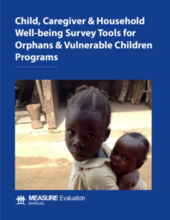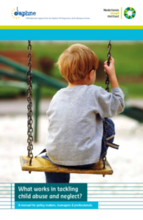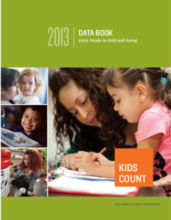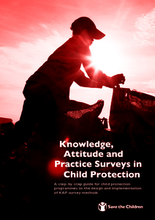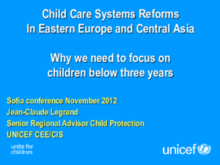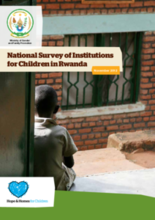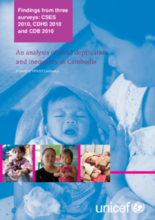Displaying 361 - 370 of 565
This manual describes the purpose of the orphans and vulnerable children (OVC) program evaluation tools, including when to use these tools, and how to use the tools.
This infographic provides statistics on children globally. It then provides information as it relates to the six objectives of John Snow Inc.'s Knowledge Management Services in relation to Orphans and Vulnerable Children, including children living in institutions, HIV/AIDS, child sexual exploitation, and more.
This manual is the main outcome of the European Commission Daphne III programme, Prevent and Combat Child Abuse: What works? Involving regional exchanges and research from five countries (Germany, Hungary, Portugal, Sweden and the Netherlands), this manual brings together knowledge on what works in tackling child abuse. The manual suggests evidence and practice-based prevention and response strategies against child abuse and neglect, including programs and services that have been shown to be successful in strengthening family care.
The 2013 KIDS COUNT Data Book provides a detailed picture of how children are faring in the United States. In addition to ranking states on overall child well-being, the Data Book ranks states in four domains: Economic Well-Being, Education, Health, and Family and Community.
This excellent article explains the process through which indicators of family care for (child) development were drafted and tested in several countries.
This guide is designed for all staff working on child protection programmes who need quantitative data on knowledge, attitudes and practices related to child protection.
In 2011, SOS Children’s Villages International developed an assessment tool to measure a state’s implementation of the UN Guidelines for the Alternative Care of Children. This tool was used as a basis for conducting research by countries participating in the SOS Children’s Villages global advocacy campaign: Care for ME! Quality Care for Every Child. Country snapshots were produced for 7 countries. They include statistical data reporting the geographical prevalence of formal care institutions, number of children in these facilities, and more.
This presentation to the 2012 Sofia Conference by Jean-Claude Legrand, Senior Regional Advisor Child Protection, UNICEF CEE/CIS, highlights the situation of children in formal care, with particular concern for children with disabilities, and recommends reform and policy initiatives to improve the childcare systems in Eastern Europe and Central Asia.
Hope and Homes for Children, in partnership with the Ministry of Gender and Family Promotion (MIGEPROF), has conducted a national survey of all institutions for children in Rwanda to obtain an accurate picture of the current institutional system and the children living within it which can be used to inform decision-making regarding the implementation of the reform strategy and provide a baseline against which progress can be measured in the future.
This paper from UNICEF presents a profile of children in Cambodia, paying particular attention to those who are left behind in different spheres - education, health and nutrition, and protection - against the backdrop of society’s prevalent inequality.

